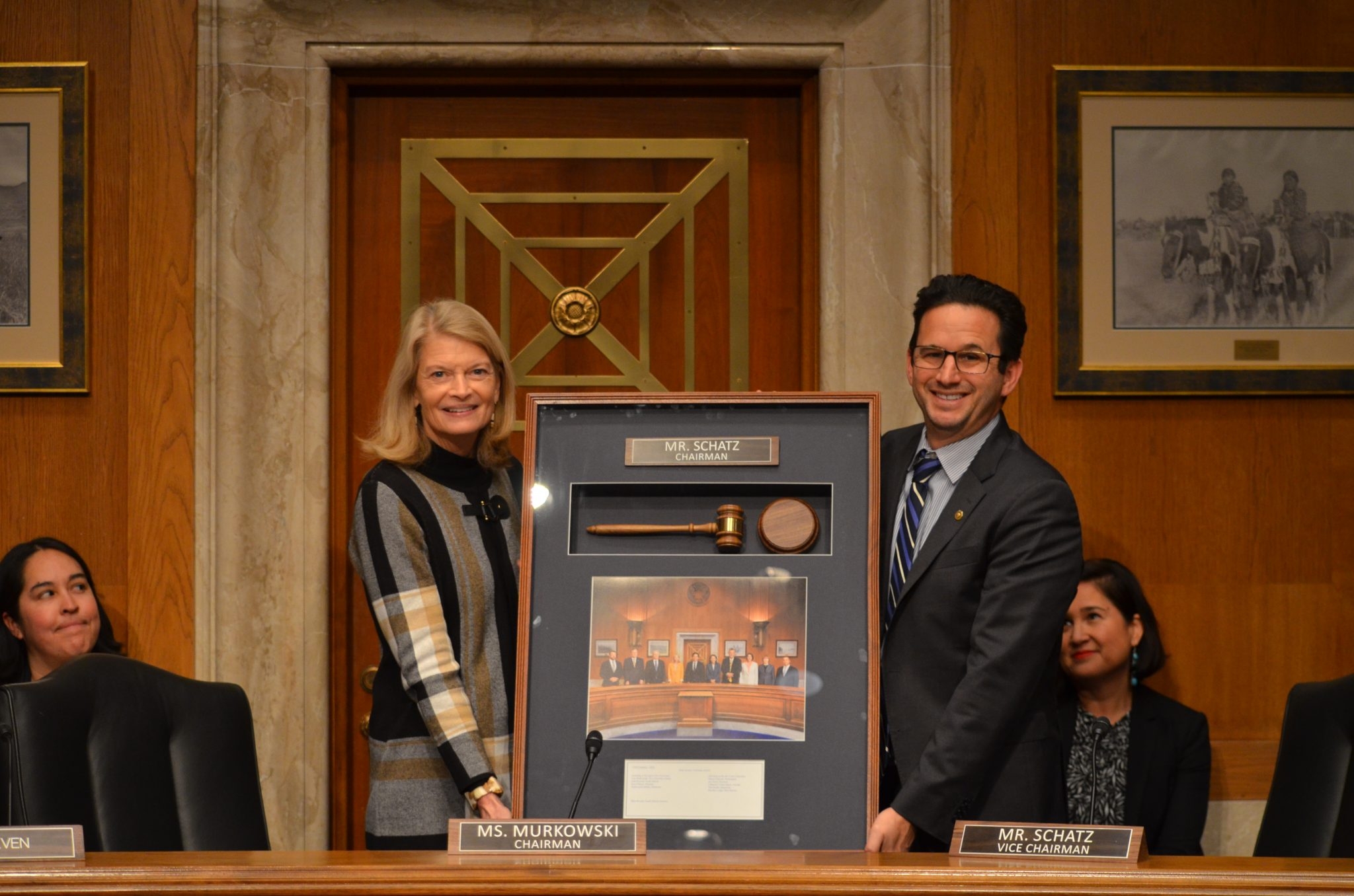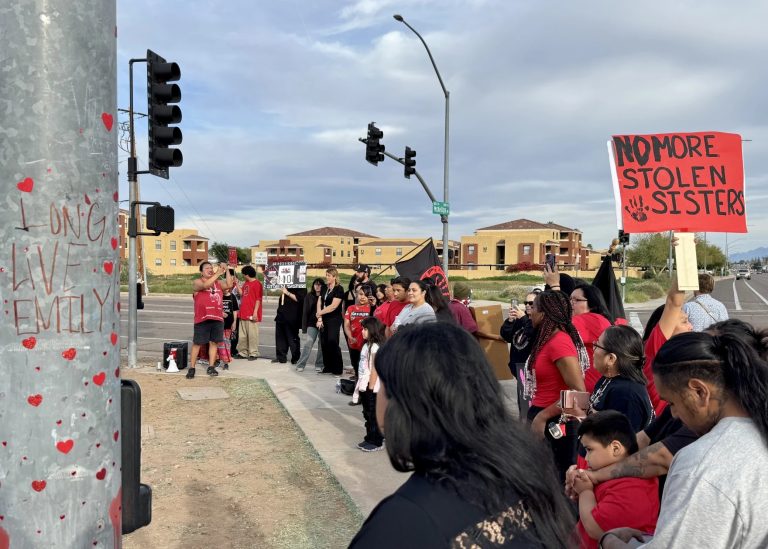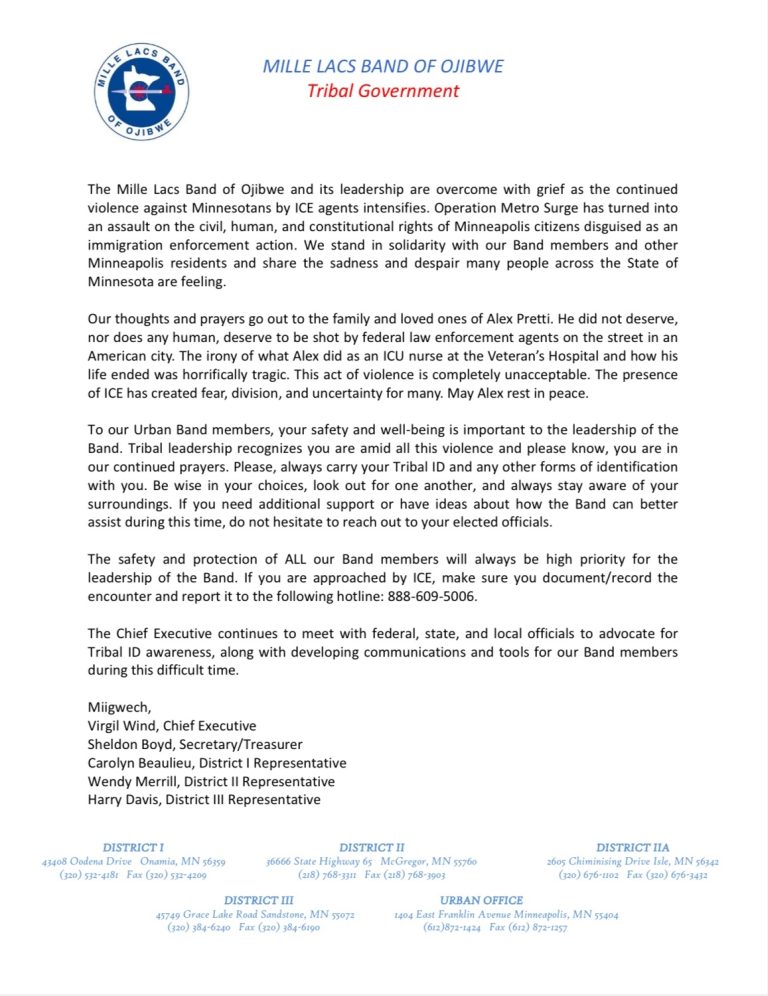Podcast: Play in new window | Download | Embed
Photo: A post marks where Enbridge’s Line 5 crosses the reservation of the Bad River Band of Lake Superior Chippewa on Friday, June 24, 2022. (Danielle Kaeding / WPR)
Federal regulators said in a hearing Tuesday that data doesn’t support a Wisconsin tribe’s claims that a pipeline project will violate its water quality standards.
As Danielle Kaeding reports, the Bad River Band of Lake Superior Chippewa says Canadian energy firm Enbridge is underestimating impacts from its Line 5 reroute.
Enbridge wants to reroute the oil and gas pipeline after Bad River sued to shut down and remove Line 5 from its lands.
The U.S. Army Corps of Engineers held a hearing over the tribe’s objection to permitting the project under the Clean Water Act.
The Environmental Protection Agency says Bad River didn’t submit data or studies that show water quality violations would occur, but Bad River Tribal Chair Robert Blanchard says permitting the project would cause irreparable harm.
“Whatever happens upstream from our reservation will affect the waters that we and many others depend on for survival.”
Enbridge’s environmental projects manager Joe McGaver disputes that.
“The Line 5 project will not impact Bad River’s water quality standards. We designed the project for that to be the end result.”
The tribe says the reroute would have a negative impact by filling wetlands, blasting bedrock and disrupting groundwater flows.
Enbridge and its consultants say wetland impacts will be temporary and blasting won’t affect groundwater or nearby wells.
Disclosure: Enbridge is a sponsor of National Native News.

Mayflower Island viewed from Gastineau Channel on Saturday, March 23, 2024. (Photo: Clarise Larson / KTOO)
The federal government may soon return a traditional subsistence site connected to Douglas Island in Southeast Alaska to its original tribal owners.
KTOO’s Clarise Larson reports.
Mayflower Island is a small, 3-acre island adjacent to Douglas Harbor and Sandy Beach.
It’s near the site of the former Douglas Indian Village, which Douglas’ city government burned in 1962.
The City and Borough of Juneau formally apologized for the burning last fall.
At a Juneau Assembly lands, housing, and economic development meeting last week, members gave initial approval for a plan that would acquire the island from the federal government and then give it to the Douglas Indian Association (DIA).
DIA officials did not respond to KTOO for a request for comment.
Dan Bleidorn, the city’s Lands & Resources manager, says this is a plan that has been years in the making.
“This is on the list of 2025 Assembly goals for community wellness and public safety. The goal states to support Douglas Indian Association’s efforts to acquire Mayflower Island.”
The island once served as a traditional subsistence site and yielded a herring run and spawn used by DIA.
DIA is currently in the process of building a cultural learning center near former site of the village.
According to a spokesperson for the U.S. Bureau of Land Management (BLM), the property has been under the federal government’s stewardship since 1890.
The island was originally reserved for the U.S. Navy to use as a naval station, but, in 1948, it was transferred to the Federal Bureau of Mines, which constructed a mineral laboratory on the site to process ore samples for research.
The BLM took over the property in 1996 when Congress closed the Bureau of Mines.
The U.S. Coast Guard also used the site under an agreement with the BLM, but that ended in 2023.
Bleidorn says the actual property transfer is likely still a few years out. But the Juneau Assembly’s approval is the next step in moving that process along.
The resolution will still need to come before the Assembly for final approval.
 The U.S. Senate Committee on Indian Affairs is holding a hearing Wednesday on public health and social services for Native Americans.
The U.S. Senate Committee on Indian Affairs is holding a hearing Wednesday on public health and social services for Native Americans.
The hearing will examine federal programs serving Native Americans across the Department of Health and Human Services.
The hearing comes as the committee’s leaders, U.S. Sens. Lisa Murkowski (R-AK) and Brian Schatz (D-HI), recently sent a letter to Health and Human Services Secretary Robert F. Kennedy, Jr., raising concerns about potential impacts on Native communities with Trump administration workforce reductions and funding cuts.
Get National Native News delivered to your inbox daily. Sign up for our daily newsletter today.



